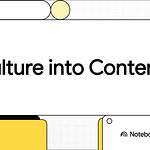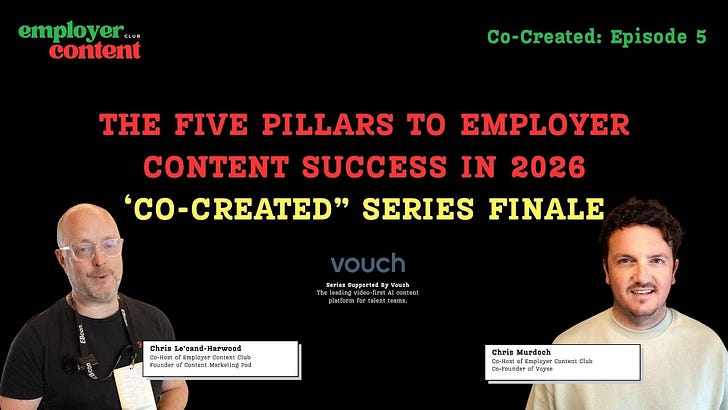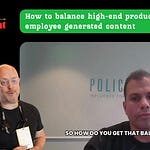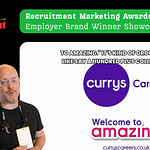Whether you're in talent acquisition or employer branding right now, you're probably feeling the squeeze. The lines between these disciplines are blurring, and the stakes have never been higher.
In my latest podcast episode, I sat down with Mike Bradshaw, VP of Talent at Pinpoint, who's spent 15 years in HR and TA - from Apple to being the first TA / People Leader at multiple startups.
What makes this conversation valuable for both TA professionals and employer branders is Mike's insight into how candidate experience has become the ultimate test of your employer brand promise.
His perspective is particularly valuable - he's lived on both sides: as a practitioner buying and implementing recruiting tools, and now as someone who’s part of a business that’s helping organisations solve these exact challenges.
But more importantly, he understands that in 2025, your employer brand is only as strong as your candidate experience - and your candidate experience is what actually wins talent.
This episode was both sobering and hopeful.
Sobering because the challenges facing TA teams in 2025 are genuinely tough. Hopeful because there are real, actionable strategies that work - even when you're doing more with less.
The Perfect Storm Hitting Recruiting Right Now
Mike painted a picture that many of you will recognise: "TA leaders in 2025 are navigating one of the toughest landscapes that I've probably ever seen."
Here's what's creating this perfect storm:
Volume is through the roof. Applications per recruiter are way up, partly due to mass layoffs, partly due to how easy it is now to mass-apply to jobs. But a lot of these applications aren't actually relevant, creating more work that doesn't help anyone.
Resources are way down. Teams are leaner, budgets are cut, and recruiting is often the first place leadership decides to scale back. Some see it as a temporary pause; others are betting that AI will just handle recruiting in the future.
Top candidates are harder to move. In 2021-22, people could job hop for a 25% raise overnight. That's not happening anymore. Secure talent are staying put, which means your EVP, job descriptions, and communication through the process have to be absolutely top-notch.
AI is both helping and complicating things. AI-inflated resumes can make it harder to distill what's relevant. Everyone's getting more messages from more sources, so cutting through the noise is harder than ever.
The Candidate Experience Paradox
Just when candidate experience matters more than ever, it's often the first thing that suffers when teams get stretched thin.
"Every TA leader I talk to cares about candidate experience, but when their rec load is doubled and they've lost half their team, it's the first thing that suffers."
And yet, candidate experience is often what wins the day. Mike told me about countless times Pinpoint has won candidates who had better offers financially, simply because of the experience they had throughout the process.
What Works: Have Non-Negotiables
Despite all these challenges, Mike shared some approaches that really work, regardless of constraints:
Transparency from day one. This means clear job descriptions, honest requirements, open salary ranges, and a realistic picture of what the process will take. Every job description at Pinpoint tells candidates how many steps there are, who they'll meet, and what assignments might be involved.
Communication over silence. Most bad candidate experiences aren't about rejection - they're about silence. If someone applies, acknowledge it. If they're moving forward, tell them what's next. If they're not, close the loop quickly.
Interview hygiene matters. This includes basics like reading the candidate's resume beforehand, knowing how to pronounce their name, and setting a clear agenda. Mike's team always starts interviews by outlining the structure: "This is 30 minutes. I'm going to talk for 15, ask you questions for 15, then you'll have 12 minutes for your questions."
Pay candidates for their time. If you're asking someone to complete an assignment or project, pay them. It's baseline respect and signals how you treat employees once they're inside the company.
The Role of Technology: Getting it Right
Having been both a buyer and now someone who’s in a business that’s helping others implement solutions, Mike has seen how tools can either solve real problems or make them worse.
His advice?
Don't grab shiny tools without a clear strategy. When you're already stretched thin, taking on tool evaluation, demos, and change management without knowing exactly what problem you're solving often just creates more problems.
The tools that actually help are the ones that reduce friction - both for recruiters and for candidates. That might mean better integration between your sourcing and your ATS, or it might mean having a career site that doesn't require months of development work to set up.
Employer Branding: Actions Louder Than Words
One insight that particularly resonated with me was Mike's view on employer branding.
Yes, it's about selling your organisation - but it's equally about disqualifying the wrong people upfront.
Pinpoint includes a section in their job descriptions called "the fine print, but way more exciting" that honestly outlines what's hard about each role.
It's not about being self-deprecating; it's about being honest so the right people get excited and the wrong people self-select out.
This connects to something fundamental: your employer brand isn't just your marketing materials. It's every interaction candidates have with your organisation.
If you say you're "fast-paced" but candidates wait weeks to hear back after interviews, you've broken trust before someone even starts.
The Bottom Line
"There really is ultimately no excuse for bad candidate experience. It is a really deeply personal and vulnerable thing that people are doing when they go to apply for jobs."
Job searching - especially when you're unemployed or looking for stability for your family - is deeply personal. We have the ability to make it less painful and more human, even when we're stretched thin.
The fundamentals haven't changed: transparency, clear communication, structured processes, and treating people with respect.
What has changed is that these fundamentals are now the competitive advantage.
Watch the full conversation above, or listen on your preferred podcast platform. What resonated most with you? Hit reply and let me know - I read every response.
P.S. If you found this valuable, share it with a colleague who might benefit. The best way to support this newsletter is to help it reach the people who need it most.
About Pinpoint:
Not your average ATS. From planning to onboarding, Pinpoint brings every part of the hiring process - and every stakeholder - into one place, so you can move faster, stay in control, and make smarter decisions
Connect with Mike: https://www.linkedin.com/in/itsmikebradshaw/ Learn more about Pinpoint: https://www.pinpointhq.com/
Need help with producing content that enhances your candidate experience? Let’s talk.










